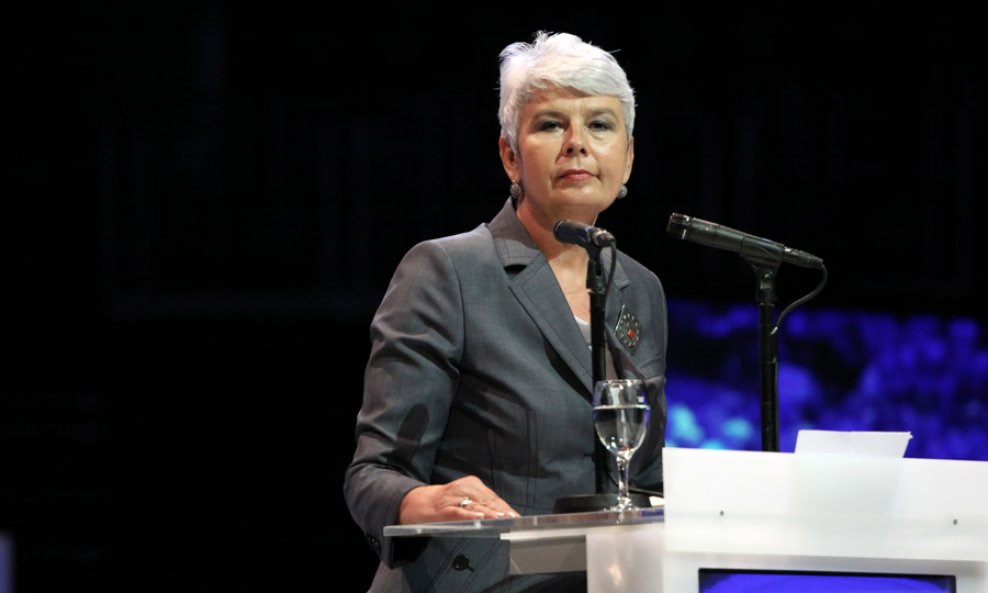It is a complete lie that the government is hiding Croatia's European Union accession treaty from citizens, Prime Minister Jadranka Kosor said on Monday, adding that she was proud of the draft treaty personally and because of her government and that the government had presented it to the president, the parliament speaker and the National Committee monitoring the accession negotiations comprised of representatives of parliamentary parties.
"I won't go into whether the newspapers have the draft treaty, but it's a complete lie that the government would be hiding something from its citizens," Kosor told Croatian Radio, adding that if the draft could be uploaded on the government's website, the government would do it.
She said the government would never sign a treaty that was bad for Croatia, stressing that it would be bad if Croatia did not sign the treaty and join the EU, since a market of 500 million people was better than one of 4.5 million, as was the possibility to study in EU countries and not only in Croatia.
Kosor said she and Polish PM Donald Tusk did not agree the date or place for the signing of the treaty when he delivered the draft on Saturday, "because what is important now is that we have the treaty and that we will sign it."
She reiterated that she would propose that President Ivo Josipovic be one of the signatories, whereby Croatia would show unity and strength, "that we are all united on at least one project."
Kosor went on to say that she had not rowed with Josipovic, including over the signing of the treaty, but had only warned "about things that aren't right", such as criticisms of the government coming from the president's office because, she said, the government "did the bulk of the job, a huge job, in EU accession."
Kosor said she was ready for talks with Josipovic, first and foremost on the appointment of ambassadors, adding that empty posts until after elections sent a very bad message. "In economic diplomacy, every lost day is a loss and it wouldn't be good that the (opposition) SDP leader should have the last say, that the ambassadors are not appointed. In these 20 years, that wasn't decided by the opposition. That's the job of the government and the president."
Asked how she would explain to the Croatian public what was good and what was bad in Croatia's EU accession, Kosor responded by asking if anything was negative in Croatia's signing the treaty and joining the EU. "It's time the opposition parties, which helped little in the negotiations, become more active in explaining that."
Asked if her government could have done more in the economic and every other respect, Kosor said "we couldn't have done more, because the climate in which we worked was such on several occasions that every attempt was made to topple the government."
Kosor said that despite resistance, the government had managed to stabilise finances, "even though we were facing collapse in 2009," as well as restore order to state-owned companies, especially regarding insolvency and corruption.
Kosor underscored the need to continue implementing the government's Economic Recovery Programme, since part of it referred to the period upon Croatia's accession to the EU. She added that investments worth HRK 20 billion had been launched recently.
Kosor went on to say that she was still for repealing the Golf Act. "No golf course has been built since this act was passed, it has caused a lot of diverging opinions, and golf courses can be built even without this act."
She dismissed speculation that all the shipyards that did not have a positive balance could be liquidated by the end of the year, and announced that the government was seeking investors, primarily "domestic forces", for the resumption of construction work on the Peljesac bridge.

































